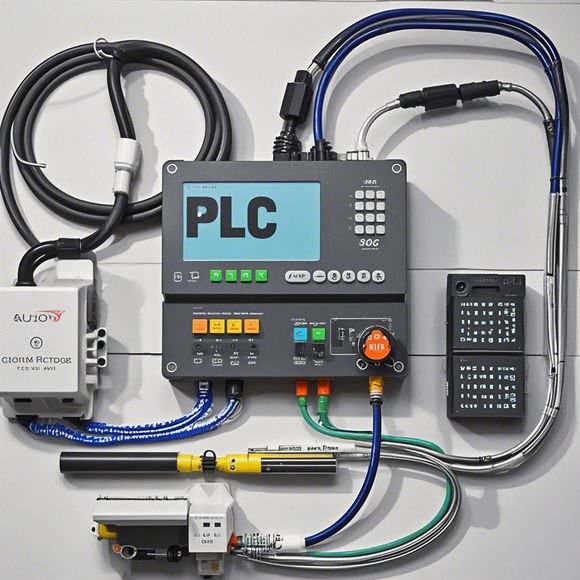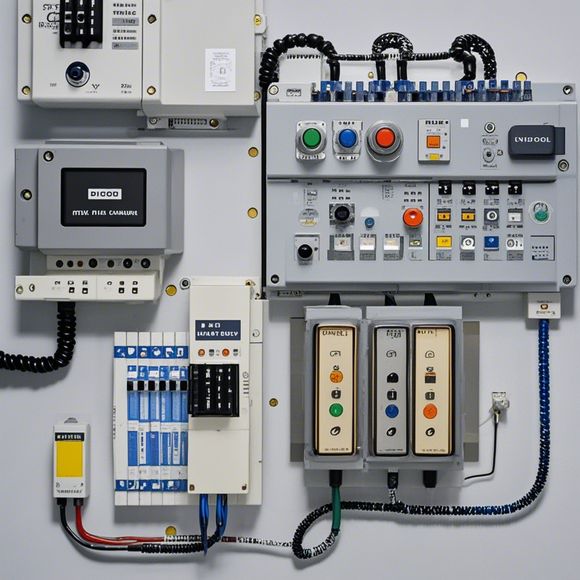PlC Controllers: The Powerful Tools for Managing Industrial Processes
PLC Controllers: The Powerful Tools for Managing Industrial ProcessesPLC controllers, or Programmable Logic Controllers, are a vital tool for managing industrial processes. These devices allow for precise and efficient control of complex systems that involve multiple variables and interactions between different elements. With their ability to program and execute instructions in real-time, PLC controllers can quickly respond to changes in the environment or internal conditions of a manufacturing facility. This automation allows for higher levels of accuracy and reliability than traditional controls, which is especially important in industries like automotive, electronics, and chemical processing. Additionally, PLC controllers can be configured to monitor and analyze data from sensors and actuators to make more informed decisions about process performance and prevent potential issues before they occur. Overall, PLC controllers are essential for modern industrial operations, allowing for increased productivity and efficiency while ensuring safety and quality standards are met.
Introduction:
In today's world of manufacturing and industrial operations, the role of Programmable Logic Controllers (PLCs) has become increasingly important. PLCs are digital controllers that use a variety of inputs to perform specific tasks based on programmed instructions. They are used in various industries, including automation, control systems, and process control. In this article, we will discuss their working principles and how they help in managing industrial processes.
Working Principles:

PLCs work by receiving input signals from sensors or other devices and then processing them through a program stored in their internal memory. The program determines which action to take based on the input data, such as controlling the flow of material, adjusting temperature, or monitoring performance metrics. The output signals are then sent to the appropriate hardware devices or actuators, which carry out the desired action.
Programmability:
One of the most significant advantages of PLCs is their programmability. Unlike fixed controllers, PLCs can be programmed to perform specific tasks based on user-defined rules. This means that they can be customized to meet the needs of different industries and applications. For example, in a food production line, the PLC could be programmed to monitor the temperature of each product and ensure it stays within safe levels.
Robustness:
PLCs are also known for their high reliability and robustness. They are designed to withstand a wide range of environmental conditions and are capable of operating without power or communication for extended periods. This makes them ideal for applications that require uninterrupted operation, such as critical safety systems or industrial automation.
Communication:

In addition to their ability to control physical devices, PLCs are also equipped with communication capabilities. They can connect to the internet or other networks to receive real-time data from remote locations, allowing for more efficient and responsive decision-making. This can be particularly useful in manufacturing environments where real-time monitoring and adjustments are necessary to maintain quality standards.
Applications:
The wide range of applications for PLCs is another reason why they have become so popular. Some common uses include industrial automation, control systems, process control, robotics, and transportation. In industrial automation, PLCs are used to automate complex manufacturing processes and streamline workflows. In control systems, they are used to monitor and regulate equipment and machinery. In process control, they are responsible for maintaining consistent temperature or pressure levels in chemical plants or other industrial settings.
Robotics:
One of the most exciting areas where PLCs can be applied is in robotics. By integrating PLCs into robotic systems, manufacturers can create highly sophisticated machines that can perform complex tasks with greater accuracy and efficiency. These robots can be programmed to perform a variety of tasks, including assembly, welding, painting, and more.
Transportation:

Transportation is another area where PLCs can make significant contributions. In automotive manufacturing, PLCs are used to control vehicle assembly lines and ensure that components are assembled correctly and efficiently. In logistics and supply chain management, PLCs can be used to optimize inventory management and reduce waste.
Conclusion:
In conclusion, PLCs are an essential tool for managing industrial processes. With their programmable nature and ability to handle complex tasks, they can help companies achieve greater efficiency, productivity, and cost savings. As technology continues to advance, it is likely that PLCs will play an even greater role in shaping the future of manufacturing and automation.
Content expansion reading:
Articles related to the knowledge points of this article:
PLC (Programmable Logic Controller) Control System Basics
Plumbers Rule! The Role of PLC Controllers in the World of Waterworks
PLC Controllers: A Comprehensive Guide to Understanding Their Prices
What is a Programmable Logic Controller (PLC)
PLC Controller Advantages: A Comprehensive Guide for Success in Global Trade
Mastering the Art of PLC Control: Unlocking Industry-Grade Automation Powerhouses